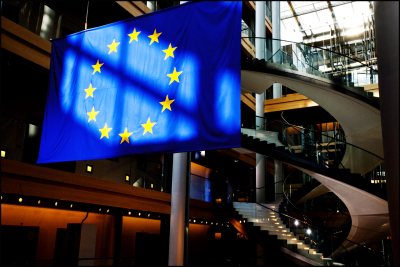The need for speed has led to a number of political innovations, most notoriously the ‘trilogue’ process
This opinion piece by Carl Dolan was published in the EU Observer – read it here
Conversation overheard between two senior Commission officials:
Official 1: “Things are going ok, but we’re desperately short of resources. I feel like a hamster on a wheel.”
Official 2 [shrugs]: “We are all hamsters on wheels”.
Despite the synchronised beeps and trills of our iphones, time is a notoriously subjective phenomenon. So while to the outsider, ‘Brussels’ may be a synonym for political processes that unfold in geological time, seemingly indifferent to the passions and interests of mere mortals, the chief characteristic of daily life as experienced within EU quarter of the Belgian capital is ‘busy-ness’.
There is hardly a single person I know working in the institutions or their satellite industries of public affairs and journalism who doesn’t pine for a 25th hour in the day or bemoan the relentless whirl of workshops, breakfast briefings, policy seminars and consultation deadlines.
The often hyperactive nature of the policy merry-go-round has a number of downsides – not least the hunched physiques, bad digestion and pallid complexions of its practitioners – but I also want to suggest that it is bad for decision-making and democracy, especially the peculiar variants that are the stuff of EU politics.
Good governance may mean taking the foot off the pedal from time to time. We need politics’ answer to the ‘slow food’ movement.
It’s a truism that we are all time-poor these days, and so to be as busy as everyone else is often seen as a badge of honour, evidence that you’ve made the grade. Harness this frenetic zeitgeist to the adrenalin-fuelled machines of politics and journalism and you already begin to see the outlines of a problem.
Now put this through the rubik’s cube of 28 political systems.
The ‘trilogue’ process
Insomniacs and obsessives thrive, but the quality of EU decision-making may be the loser. Take Juncker’s flagship investment plan, something that has all the hallmarks of being rushed through to give the impression that the new Commission is on the front-foot and full of vigour and verve.
There is a view that the first 100 days of any administration sets the tone and a €315 billion ‘bazooka’ for the faltering EU economy seems to fit the bill. Never mind the wobbly numbers. Never mind the fact that most of the legislation underpinning the plan has yet to be enacted. Never mind that the institution charged with administering the plan, the European Investment Bank, has a poor history of transparency and appears to be getting worse.
Just get the damn thing announced! Look busy!
If the projects to be funded by the EIB are selected and implemented with the same unseemly haste as the policy, we might be in for more than a few bridges or railway lines to nowhere.
This need for speed has led to a number of political innovations, most notoriously the ‘trilogue’ process for getting agreement between the European Commission, European Parliament and EU Council on legislation. Originally a short-cut for hard-pressed MEPs and officials overwhelmed by co-decision files, it has become the norm for thrashing out agreement on most EU legislation.
As we pointed out in our EU Integrity Study, the meetings are a major transparency black-hole where major concessions are won and lost with no public disclosure and little oversight. In the vast majority of cases, Parliament’s plenary vote serves only to rubber stamp the deals secured by a handful of negotiators from each institution, sidelining 90% of MEPs in the process. Even the Parliament’s own internal strategy document recognises that transparency has been traded off against efficiency and there is need for reform.
It also leads to a few absurdities.
Final trilogue meetings, where ‘political agreement’ is reached, are marked by a flurry of tweets and press releases as each side tries to claim victory. Newspapers report this spin and hearsay, since the actual legal documents are only made available weeks and months after this agreement, and long after the media caravan has passed on.
Loopholes
Often the final text of the legislation contains loopholes or important legal subtleties at odds with the political messages trumpeted earlier.
This is our experience of recently concluded reforms to EU anti-money laundering legislation. When the deal was struck shortly before Christmas, negotiators loudly proclaimed a major blow against corruption and tax evasion.
Then a drip-feed of cavils and caveats began to emerge. At last, the final text appeared this week buried deep in the Council website, accompanied by a message from those notable transparency champions in the Austrian government who took the unusual step of putting their reservations in writing, pointing to loopholes that could undermine the intent of the legislation and reduce its effectiveness. But even they recognise the futility of trying to reopen a trilogue agreement.
The public is poorly served by all this. Transparency and accountability are not only constitutive of well-functioning democracies, they facilitate the kind of careful, collective deliberation that ensures that decision-making leads to good policy outcomes, the kind of thoughtful deliberation that is too often sacrificed for headlines and quick political wins.
A slower, calmer pace of life might benefit everyone – the harried denizens of the Brussels bubble and the rest of the EU’s citizens.




